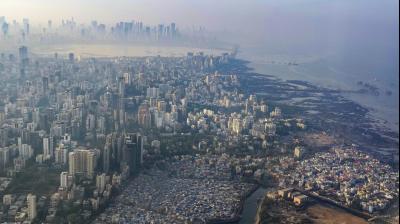Accident victims: Hostages to memory loss and apathy
With a staggering number of road accidents in the Capital everyday, the All India Institute of Medical Sciences is left taking care of patients who either lose their memory or end up in a vegetative s
With a staggering number of road accidents in the Capital everyday, the All India Institute of Medical Sciences is left taking care of patients who either lose their memory or end up in a vegetative state. Such patients are declared “unknown” by the hospital and shifted to an NGO, which further transfers the cases to its Alwar centre. While the NGO says that a few patients do eventually reunite with their families, for the rest survival is an ordeal.
The trauma centre at AIIMS deals with around 4,000 accident cases annually, of which more than 50 per cent patients are categorised as “severely injured”.
In the past two years the AIIMS trauma centre has admitted more than 3,500 “severely injured” cases, of which more than half were operated for spinal and head injuries. The rise in toll is unabated with over 1,000 dying in these accidents every year. Ironically, for those who survive, living becomes difficult.
Among the severely injured patients in the trauma centre, around 100 patients end up in coma or in a vegetative state. In the past one year, around 10 patients with memory loss have been shifted to the NGO, which further moved them to their Alwar care center.
Sapna, the NGO, runs on private donations and takes on around two patients every month who’ve been abandoned by their families.
The staff at the NGO’s Delhi and Alwar center explain that for patients with no memory at all, they try to recreate bits and pieces of their life.
A 22-year-old boy at the Alwar center was brought in nine years ago. The staff calls him Arjun — they assume that is his name because it is tattooed on his left wrist. Arjun has no long-term memory. He has bouts of anger after which he forgets that he has been in the care centre for so long. “We have tried to probe and tried to see if he can remember anything. I guess now we just focus on his overall health,” said Chandan Kumar, the coordinator for the center.
The Alwar centre has around 10 patients like Arjun. Most of them have no recollection of anything before they were brought to the AIIMS trauma centre in Delhi. On either side of the aisle of the trauma center lie people who may have once been the sole bread-winners of their families. Apart from familial amnesia, there is a criminal vacuum in policy and infrastructure for rehabilitating accidents survivors whom no one comes to claim. A substantial percentage of accidents victims were pedestrians or they worked on streets.
Chandan, who has been working at the centre for more than a decade, fondly remembers the families who came to take away patients from the center in Alwar. The staff and the doctors at the centre also talk of the apathy of family members who are unable to deal with the trauma and quite often end up abandoning the patient.
The Alwar Centre, perpetually short of staff and resource, depends on private donations to keep the show running. There is one doctor available 24/7, three nurses and a few caretakers. This is all the manpower they have to take care of the 38 patients they care for. The center has seven patients who have lost their memory.
About 1,40,000 died in the country due to road accidents. Delhi alone registered 8,000 accidents in 2015. Data shows that there are 16 fatalities every hour in India.


















